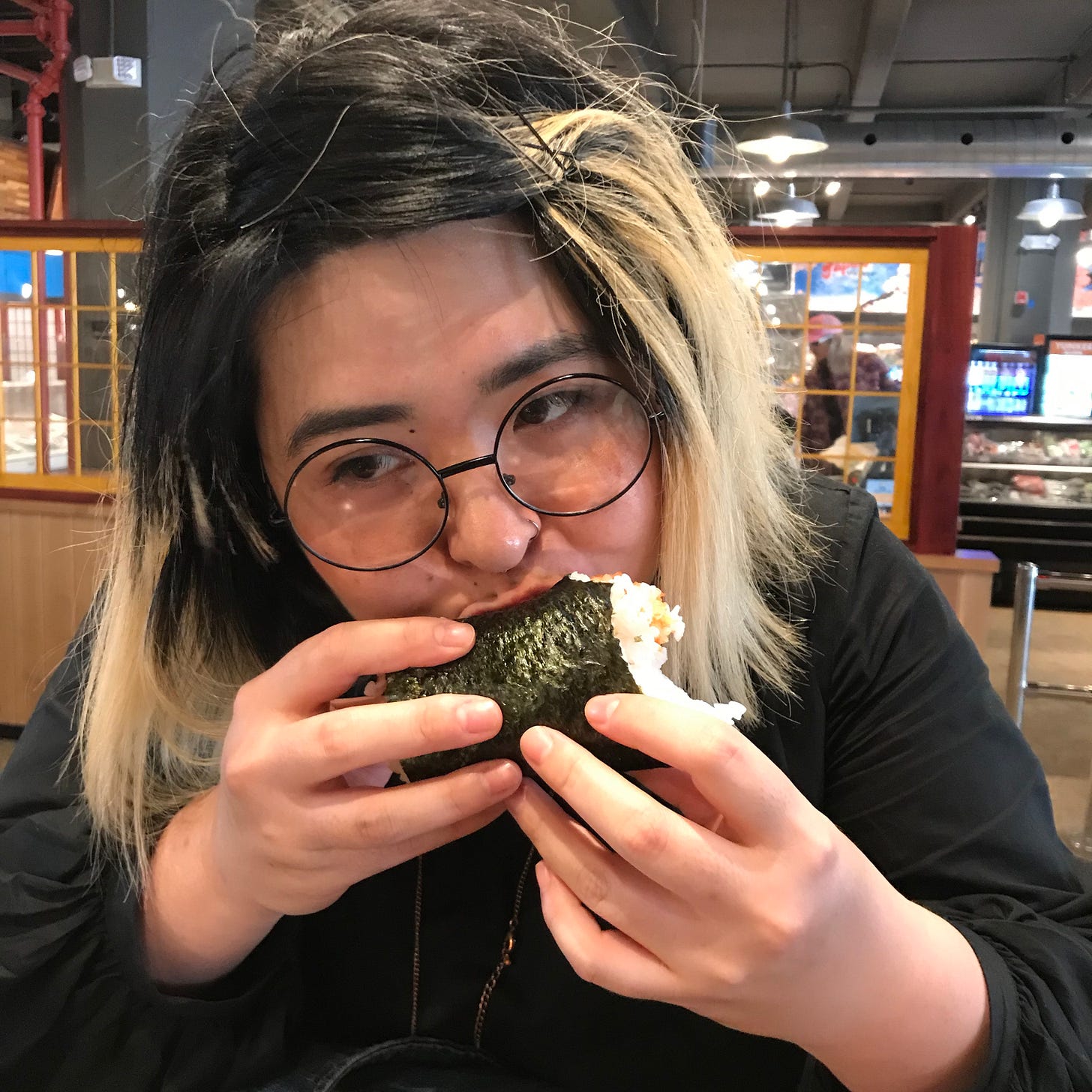There's a reason for the safety valve
Matt wrote: “people and dogs eating should be a regular element of your newsletter!” He’s never steered me wrong, so there’s now an instagram, which will mostly be of people and dogs eating. I expect there will also be occasional photos of bread, and when I’m illustrating a piece, perhaps some shots that don’t make it to the newsletter. I’ll cross-post one photo from there to the newsletter each week, but I expect there will be many more photos on the ‘gram.
I’ve been reading Pressure Cooker, by Sarah Bowen, Joslyn Brenton and Sinikka Elliott. I highly recommended it, but if you are watching your verbiage intake, this interview with the authors offers a taste of the content with 98% fewer words.
The book is a critique of Michael Pollan, Jamie Oliver, and everyone else who’s ever delivered a TED talk on food (virtually all upper-middle class white men). As Elliott says, they set out to reverse the food pundits’ idea that “we have to fix our diets before we fix the economy.” They further point out the harm that these ideas do - by assigning moral weight to the way people cook and eat, food pundits reify many of the structural injustices that make it difficult for people to relate to food the way the pundits think they ought to.
The authors interviewed numerous mothers and grandmothers living in North Carolina, ultimately embedding themselves with a few households to document in detail how those women fed their families. Their research is a wrenching description of how these women lack neither desire nor information (as the TED talks often suggest), but face overwhelming structural obstacles to feeding their families the way they want to. Poverty, homelessness, irregular employment, and transport networks based on private car ownership all contribute to these women being unable to feed their families according to our society’s image of what it means to feed your children well. The pundits’ perspectives are shown to be, if not outright wrong, then at least exclusionary, incomplete, and unhelpfully expressed.
Because this is a book about home cooking, the authors don’t really discuss the supply side of the food system. They plausibly don’t need to - it’s well documented that supermarkets don’t price in the pollution and other externalities generated by industrial scale food production; and nearly all industrial agriculture and food processing relies on exploitative or unsafe labor practices, essentially subsidizing our food with human suffering.
One of the key points of Pressure Cooker is that many people don’t have the option of “voting with their forks” and opting out of the conventional food system as Pollan in particular has suggested. They cannot choose not to be part of the industrial food system, and so they cannot choose not to be complicit in the human and environmental exploitation that goes with it.
The irony is that many of the most vulnerable families in our society are employed in the food system: on farms, at food processors, in retail and distribution, and of course in restaurants (one of the women featured in the book works at Wendy’s, and so does her spouse). It’s not hard to imagine that a system where better labor practices prevail would also offer the workers in it greater control over what they eat. And it’s not hard to see the tragedy in the one we have now.
The second most interesting food related thing I’ve read recently was this piece in Grub Street, wherein some journalists attempt to trace every bite of food they take in one day back to its origins. It’s an evocative depiction of the scale of the problem/opportunity I talk about above.
Japan Village in Industry City is a food court within a food court within an amusement park. I was there with Diana and Jenny and we all got really excited when we saw that someone had been crazy enough to open a stall selling fresh onigiri.

I’ve never before had these when the rice was still steaming. It’s not an unalloyed improvement, but there is something about being handed a huge handful of warm rice that’s just incomparably welcoming. It’s like being handed not quite a love letter, but a really charming, utterly genuine like letter.
If you’ve enjoyed the stories so far, please consider sending a link or an issue along to someone you know who might find this interesting, or consider posting something about this on social media. There’s nothing like word of mouth.
Thank you for reading let them eat cake, a weekly newsletter about food systems and food. And as always, a super-special thank you to my pre-release readers, Jen Thompson and Diana Kudayarova.
best,
tw
p.s. I’d love to buy you a coffee. Drop me a line!


